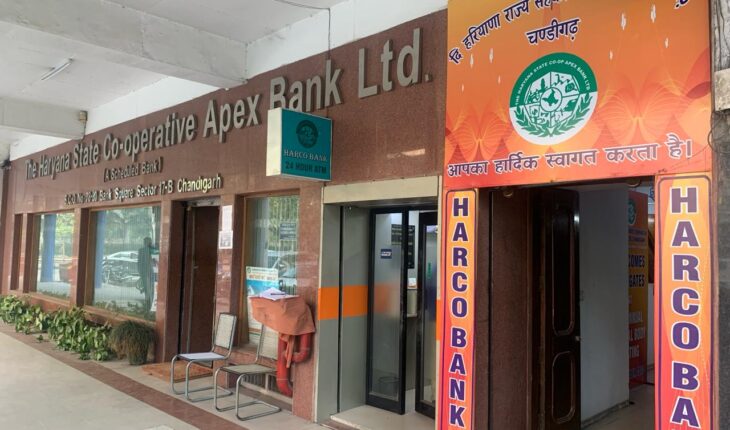Established with the noble objective of liberating the poor from the clutches of dodgy and mammonist moneylenders, who demanded high pitch interest rates from the lower strata people, the cooperative banks in India have played a pivotal role in uplifting the poorest of the poor and the socio-economically underprivileged strata.
However, there are commercial and nationalized banks also spreading up in most of the areas of the country, but in the earlier stages they were found to be serving the higher ranks and files of the society. The poor were very much hesitant even to enter into these high-profile banks. So, the need was felt to expand such banks which can serve at the lowest level. To fulfil the gap, Cooperative and Regional Rural Banks were inflated, which are serving the lower strata masses in an exemplary mode.
The major difference in the working and serving between a commercial bank and a cooperative bank lies in their approach to revenue generation. Where commercial banks follow the rule of earning maximum profits, cooperative banks work on the principle of “Service with No Pick-Pocketing”. The primary role of cooperative banks is to extend financial assistance to the needy masses at the most nominal interest rates with a smiling service.
The Cooperative banks in India work at three levels- The State Cooperative Bank functions as the apex body and works as a bridge between District Cooperative Banks and RBI. District Cooperative Banks operate at the district level and their primary role is to dispense funds to the primary cooperative banks. The third wing and the actual body,
Primary Agricultural Credit Societies (PACSs), which functions at the grassroot level directly cater to the local populace by offering loans and other services.
Initially, the cooperative banks were to assist the populace in tiny offices, having one table and one chair for the secretary at PACS, who worked with a lengthy ledger-‘BahiKhata’ to keep all types of records , with powers of small financing just to uplift them upto a level of self-dependency. But now they have emerged to compete with the commercial banks in all fields, having an adorable office set-up with a computerized system.
Union Home and Cooperation Minister, Amit Shah, has taken more than 54 initiatives in a short span of time. “Computerization of PACS” project is one of the major initiatives of the Ministry under which 63,000 PACS are being computerized with the total financial outlay of Rs.2,516Crores. Till now, more than 12,000 PACS have been computerized across 28 States/UTs.
The Ministry of Cooperation had invited the Chairpersons of around 250 beneficiary PACS and their spouses from 24 States and 2 UTs across the country to witness the Republic Day celebrations. On the eve of Republic Day, Union Minister of State for Cooperation B.L. Verma interacted and had dinner with the Special Guests. During the interaction, Verma highlighted many significant initiatives taken by the Ministry of Cooperation. He also assured the Chairpersons of PACS about the Ministry of Cooperation unwavering commitment to furthering the strengthening of the cooperative sector. Some of the Chairpersons shared their experiences about the benefits derived from the PACS Computerization Project to their respective Societies.
A case study of Haryana’s Apex Bank
What the baseline reality is? Interacting with the Ground Post, the newly joined Managing Director of ‘The Haryana State Co-operative Apex Bank Ltd.’ (HARCO BANK), Dr. PrafullaRanjan, claims that we are fully complying with the government’s guidelines and policies.
While issuing a brief statement about the activities of the bank, Dr. Ranjan informed that he had assumed charge of the post of Managing Director on 01.12.2023.
He further divulged that at present, the Co-operative credit structure is working at three levels, in which at the state level, HARCO Bank, which has 13 branches and two extension counters in Chandigarh and Panchkula, and at the district level, 19 District Central Co-operative Banks (CCBs)
are working with a network of 573 branches and 26 extension counters, 781 Primary Agricultural Credit Societies (PACS), catering to the financial needs of 11.70 lakh members mostly living in rural areas of Haryana. There are 1546 sales centres at PACS level, which are a strong base for providing fertilizers, seeds, pesticides etc. to the farmers in the state. To meet the credit requirements of short-term co-operative credit structure, various types of activities are undertaken by the bank like mobilizing deposits, raising/borrowing funds from various higher financing agencies like RBI/NABARD, State Government etc.
Dr. Ranjan said that with a view to provide hassle free services to the people of the state, the Core Banking System (CBS), RTGS, NEFT, SMS Alert, ATM, Micro ATM Card facility have been introduced in Harco Bank and 19 district central cooperative bank branches. Mobile Van Banking is operational and HARCO Bank has started providing the facility of Phone pay, G Pay on UPI on mobile apps to its customers.
Sharing the figures of the bank, Dr. Ranjan stated that the
Paid-up Share Capital of the HARCO bank was Rs. 363.13 crore as on 31.01.2024 and the bank’s own funds as on January end was Rs. 1315.89 crore. With a solid working Capital of the bank as on 31.01.2024 Rs. 10365.51 crore, bank has earned a net profit of Rs 88.52 crore for the year 2022-23 whereas it was Rs. 67.84 Crore for the year 2021-22. With a strong base of the deposits of the bank Rs. 5021.41 crore as on 31.1.2024, the bank during the Rabi Season 2023-24 has advanced a sum of Rs. 3773.10 crore against the disbursement target of Rs.7673.00 crore till 31.01.2024 and we are sure that we will achieve the target upto March end.
To boost the ‘BetiBachao – BetiPadhao’ mission of Prime Minister, NarenderModi, HARCO Bank is soon going to implement ‘HamariBitiya’ scheme, under which more interest will be given on recurring deposits / fixed deposits for minor female children, so that the said deposits can be used for their bright future, added Dr. Ranjan.
Challenges before Co-operative Banking channel
Despite these charming working figures of the Apex HARCO Bank, its root level PACS are facing hardship in recovering the loan amount in time and the Kharif Season recovery of District Central Co-operative Banks (DCCBs) as on 31.01.2024 remained 23.99%, which shows the critical position of these institutions. Commenting over this, HARCO Bank’s MD Dr. Ranjan says that there are some issues which are being resolved and the recovery position will improve upto the March end, however, the recovery position of the Apex bank is very appreciable and the NPA of the Apex bank is less than one percent.
Now the question arises, what are the reasons behind lower recovery at PACS level?
Despite their substantial role in the agriculture sector, cooperative banks-especially PACS, particularly in the rural sector, often face challenges in risk management. This leads to issues like default in loans and hindrance in their ability to lend effectively.
When analysed, it was found that failure of crops due to natural calamities, faulty FasalBimaYojna, unnecessary insurance claim rejection by the insurance companies and a longer delay in settlement of claims lead to the default in loan repayment by the farmers. Uncertainty of MSP also creates resentment and feeling of revenge in the farmers, which causes non-repayment of the loan. Farmers’ agitation and luring slogans of loan waiver by the politicians to woo the farmers’ votes are also major factors in default for recovery. Other loanees- small shopkeepers, agricultural labourers and persons involved in small scale service sectors, in the villages are also dependent upon the farmers, hence they also get caught in default, resulting in deterioration of the health of PACS.
But, now the central government, through the Union Home & Co-operative Minister Amit Shah’s 54 initiatives, providing lucrative schemes, has undertaken to improve the health and working of PACS and make them profitable. Implementing best practices in timely risk assessment, regular loan monitoring, and effective debt collection will be key to strengthening the financial resilience of these root level institutions and safeguarding sustainable growth in the agricultural sector.
S N Sharma, a retired AGM, having a vast experience in rural banking, now associated with HARCO BANK as a Resource Person in Business Diversification and Product Innovation cell, says, “A bright future is awaiting ahead for the Co-operative Banking Sector – especially the PACS, as the co-operative banks are present in each nook and corner of state mostly in remote areas where the commercial banks feel shy to work. Their presence is upto grassroots level. These are the backbone of the rural economy.”
But, keeping in mind the relevancy of these institutions, the strenuous efforts are required from grassroot to top level. This is the only solution.
Jag Mohan Thaken is a Haryana based retired Senior Bank Manager, views are personal





